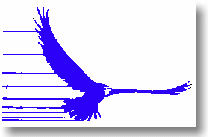
Phone/Fax: (08) 98 418 418
 |
Phone/Fax: (08) 98 418 418 |
| IT WAS OCTOBER 20, 1968… |
|---|
|
Today friend, I'd like to take your mind back to October 20, 1968. I invite you to come with me to the Mexico
City, Olympic Stadium. The time, 7.00 P.M. The closing ceremonies had just been completed. The spectators and
athletes, still warm from the euphoria of the celebration, were gathering their belongings to leave the stadium.
Then the announcer asked them to remain in their seats. Down the boulevard came the whine of police sirens. From
their vantage point, many in the stadium could see motorcycles with their flashing blue lights, encircling someone
making his way toward the stadium. Whoever it was, he was moving slowly.
Everyone remained seated to see the last chapter of the Olympics take place. By the time the police escort got to the stadium, the public address announcer said that a final marathoner would be making his way into the arena and around the track to the finish line. Confusion was evident among the crowd. The last marathoner had come in hours ago. The medals had already been awarded. What had taken this man so long? But the first sign of the runner making his way out of the tunnel and onto the track told the whole story. John Stephen Akhwari from Tanzania, covered with blood, hobbled into the light. He had taken a horrible fall early in the race, whacked his head, damaged his knee, and endured a trampling before he could get back on his feet. And there he was, over 40 kilometres later, stumbling his way to the finish line. The response of the crowd was so overwhelming, it was almost frightening. They encouraged Akhwari through the last few metres of his race with a thundering ovation that far exceeded the one given the man who, hours earlier, had come in first. When Akhwari crossed the finish line, he collapsed into the arms of the medical personnel who immediately whisked him off to the hospital. The next day, Akhwari appeared before sports journalists to field their questions about his extraordinary feat. The first question was the one any of us would have asked, "Why, after sustaining the kinds of injuries you did, would you ever get up and proceed to the finish line, when there was no way you could possibly place in the race?" John Stephen Akhwari said this: "My country did not send me over 11,000 kilometres to start a race. They sent me over 11,000 kilometres to finish one." Friend, I remember witnessing this amazing display of courage on October 20, 1968, and I have shared what John Stephen Akhwari said to the journalists to remind you that it is not enough to know where the finish line is; you have to also be prepared to crash through the quitting points you encounter on your way to it. So no matter what happens in your marathon, which is your life's journey, I encourage you to keep your hope alive! And the reason I say this, is because hope keeps you excited about the future - whatever your age-and therefore about the present. Remember Winston Churchill's famous five-word speech? -- "Never, never, never give up!" If you would like to receive a FREE pamphlet titled "HOPE", which could help you win life's marathon, I'd be pleased to send it to you. Just write to me at: P.O. Box 1540, Albany, WA 6331. Or Phone/Fax : (08) 98 418418. Email: abl-alb@omninet.net.au Hope on, my friend! |